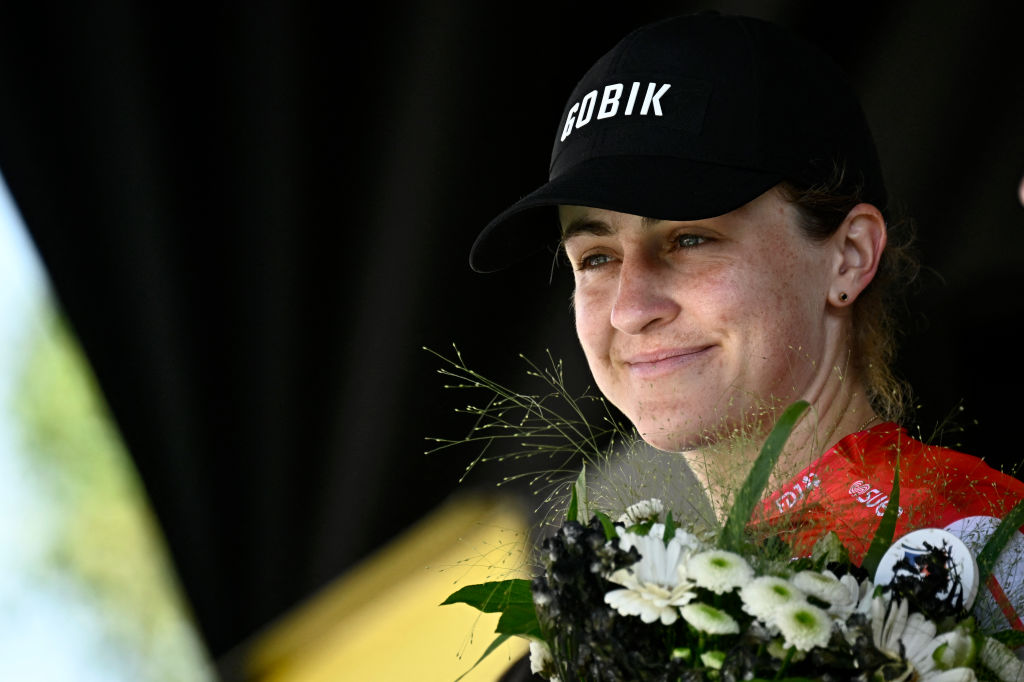Safety, salaries and fair working conditions - Grace Brown discusses agenda as new TCA president
'The role of president was the perfect opportunity for me to continue having a positive impact on women’s professional cycling' says time trial World Champion

Recently retired from professional cycling, Grace Brown has stepped into a new role as the president of The Cyclists' Alliance (TCA) and has highlighted safety, salaries, and fair working conditions as just a few of the areas in which she will help the organisation continue its work to improve across women's cycling.
Brown retired from the sport in 2024 after one of her most successful seasons where she won Liège-Bastogne-Liège, a gold medal at the Paris Olympic Games and a rainbow jersey at the Zurich Worlds, both in the individual time trial.
In a recent Q&A on TCA's Instagram feed, Brown explained that moving into her new role as head of the association would help her stay connected to the sport in a meaningful way.
"TCA’s mission strongly aligns with my vision and passion for cycling, women’s sports and gender equity. The role of president was the perfect opportunity for me to continue having a positive impact on women’s professional cycling, despite stepping away from racing," she said.
Women's cycling has seen significant improvement since Brown signed her first professional contract to race under WIggle High5 in 2018. She went on to race for Mitchelton-Scott and FDJ-SUEZ before retiring at the end of this year.
During that time, the UCI announced that it had added minimum salary requirements, along with a maternity leave clause and other securities such as insurance to Women's WorldTeam contracts in 2020, although some teams had already been including these types of provisions in their rider contracts before the UCI's policies.
"I had a relatively short career in professional cycling, but in that time I witnessed huge changes in the sport. The most tangible change has been rider salaries, which have more than quadrupled for high-value riders in the past five years," Brown said.
Get The Leadout Newsletter
The latest race content, interviews, features, reviews and expert buying guides, direct to your inbox!
"We are also seeing teams with greater resources across the board. One of the best changes has been the increase in broadcast of women’s races, which in turn has brought more fans to our sport."
In addition, race organisers who were part of the Women's WorldTour were required to offer a minimum of 45 minutes of live television coverage if they wanted to uphold their top-tier status, bringing more visibility to women's cycling than ever before.
The UCI also confirmed at a recent WorldTour Seminar held last month in Nice, France that it would introduce Women's ProTeams in 2025. The three tiers of teams - WorldTeams, ProTeams and Continental Teams - will bring the structure of women’s professional teams in line with the men's teams.
It also confirmed that seven women’s teams have already applied for UCI Women’s ProTeam status for the first year and some additional teams have already expressed their wish to join this level in 2026.
Still despite the significant improvements made to the top-tier of women's racing, there have been growing concerns that the bottom tier of Continental teams has fallen behind. Continental teams are not obliged to pay its riders a minimum salary, although some do.
The 2023 TCA annual survey revealed that among the second-tier teams, riders who responded to the survey indicated that they "struggle to make ends meet". In addition, those who responded to the survey indicated that "financial reasons" continued to be the number one reason most women consider leaving the sport earlier than planned.
"Despite the positive growth of the sport, there are still some areas that are lagging behind. We are particularly aware that growth at the top doesn’t always trickle down," Brown said.
"For example, the conditions on Continental level UCI teams still leave a lot to be desired, with many riders still without a salary. We want to make sure this cohort of women are not left behind, especially because they are in an important and vulnerable development phase of their careers."
Brown said that rider safety is also a main concern at the forefront of the TCA's strategy for improvements in women's cycling.
"With the level of the women’s peloton increasing each year, the dangers of the sport are becoming more prevalent. This is something that all stakeholders in cycling, including riders, need to work together on improving."
Brown said that she is committed to maintaining a "united voice" across all three tiers of women's cycling so that they maintain the leverage needed to negotiate concerns among the peloton.
"It is also crucial for riders to recognise that just because the top tier of the sport has seen their circumstances greatly improve, it does not mean it’s universal. We need to continue advocating for the conditions of Continental level riders as well as riders of disciplines other than road," Brown said.

Kirsten Frattini is the Deputy Editor of Cyclingnews, overseeing the global racing content plan.
Kirsten has a background in Kinesiology and Health Science. She has been involved in cycling from the community and grassroots level to professional cycling's biggest races, reporting on the WorldTour, Spring Classics, Tours de France, World Championships and Olympic Games.
She began her sports journalism career with Cyclingnews as a North American Correspondent in 2006. In 2018, Kirsten became Women's Editor – overseeing the content strategy, race coverage and growth of women's professional cycling – before becoming Deputy Editor in 2023.